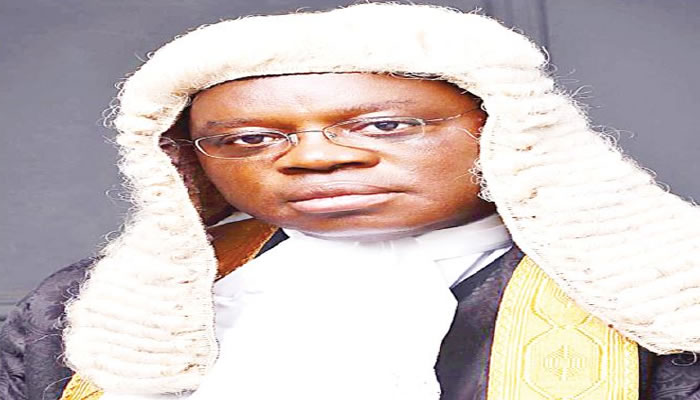
There have been mixed reactions over the Wednesday judgment of the Presidential Election Petition Tribunal. A Senior Advocate of Nigeria, Dr Joseph Nwobike SAN, speaks to Onozure Dania, on the judgment.
What is your view on the judgment of the Presidential Election Petition Tribunal that was delivered on Wednesday?
The verdict of the Presidential Election Petition Tribunal which dismissed the petitions of the presidential candidates of the Peoples Democratic Party, Abubakar Atiku, and Labour Party Peter Obi, and the Allied Peoples Movement, challenging the declaration of Bola Tinubu of the All Progressives Congress, APC, winner of the February 25 presidential poll and upheld the election of President Bola Tinubu, is a true reflection of the principles of law that govern and underpin election litigations in Nigeria. The judgment was delivered based on the understanding of the facts of evidence and submissions of counsel that were presented before the justices.
How do you see the judgment that was broadcast live being the first ever live broadcast of court proceedings?
It is a welcome idea. I commend the Court of Appeal for introducing live streaming. You may recall that the Labour Party had applied to the court to have live streaming of all the proceedings, but the court, in its wisdom did not grant the application. But, at the end of the day, they saw the need that it will guarantee transparency, hence, live streaming of the judgment gave people more insight into the judgment. I must commend the diligence, undaunted thoroughness, and professionalism of the five-member bench led by Justice Haruna Tsammani in interpreting the law.
PDP and the LP have faulted the judgment and vowed to appeal it at the Supreme Court. Do you think they will get their alleged mandate?
Parties who are dissatisfied are at liberty to proceed to the Supreme Court to test the decisions of the Tribunal. The learned justices on the Tribunal’s Bench examined and resolved all the issues of law and fact in favour of the Respondents after considering the evidences and the applicable laws. For instance, the Tribunal decided that the 2nd Respondent was qualified to contest the presidential election and that the Order for forfeiture made by the Court in Illinois, United States of America was not a conviction within the contemplation of the provisions of section 137 of the Constitution of Nigeria. The Tribunal held that the Petitioners failed to prove that the President was convicted in the United States of America as alleged in their respective petitions. The Tribunal equally decided that the Independent National Electoral Commission has the discretion on how to transmit election results. In my view, the judgment accords with the established principles of law that govern and underpin election litigations in Nigeria. I believe that the parties will proceed to the Supreme Court to test the decisions of the Tribunal. I will encourage all the parties and their supporters to abide by the decisions of the courts in this and all regards.
The tribunal resolved all the issues in favour of the respondents. What’s your view on this?
I must confess that the Judgments delivered by the Tribunal are unassailable. The basis for the resolution of all the issues of law and facts formulated by the parties is consistent with the body of judicial precedents on all the points. The decisions are, therefore, correct. However, the petitioners can still pursue their respective remedies to the Supreme Court as is customary in electoral disputes of this magnitude.
I will want to appreciate the learned justices for the rare industry applied in writing and delivering the Judgments. This is rare in the annals of modern judicial history in common law jurisdictions. The decisions will for a long time to come, serve as a veritable guide for lawyers, administrators, and politicians involved in electoral processes in Nigeria and, perhaps, beyond.
There’s the issue that a Presidential candidate must score at least 25% of all the votes cast in the Federal Capital Territory, Abuja (FCT). Do you agree with the position of the Justices on this?
On the issue of the Federal Capital Territory, Abuja, I think that the reasoning of the Tribunal accords with the cardinal rule for the interpretation of constitutional provisions in modern societies. It would have created several levels of constitutional crisis and impracticalities to hold that a candidate who scores the highest votes in a presidential election must secure 25 percent of the votes in Abuja to be declared a winner. Such an interpretation would have defeated the very mischief which that subsection sought to cure in our electoral process.
The presidential candidate of the Peoples Democratic Party, Atiku Abubakar, and his Labour Party counterpart, Peter Obi, rejected Wednesday’s court judgment and vowed to challenge it before the Supreme Court. Do you see the judgment being upturned?
There is necessarily going to be an appeal to the Supreme Court on this matter because many issues have been raised in this ruling that need more clarification to either of the parties in this litigation.
But, on whether the petitioners may be victorious at the Supreme Court, I don’t think that it will be possible for even the justices of the Supreme Court and, indeed, anyone to come to that conclusion at this time. It is very premature to say so now.
The law will determine what decision the Supreme Court will render at the end of the hearing. What is central and useful at this stage is to recognize the rare industry that the learned justice of the Tribunal deployed to the hearing and determination of the Petitions.











